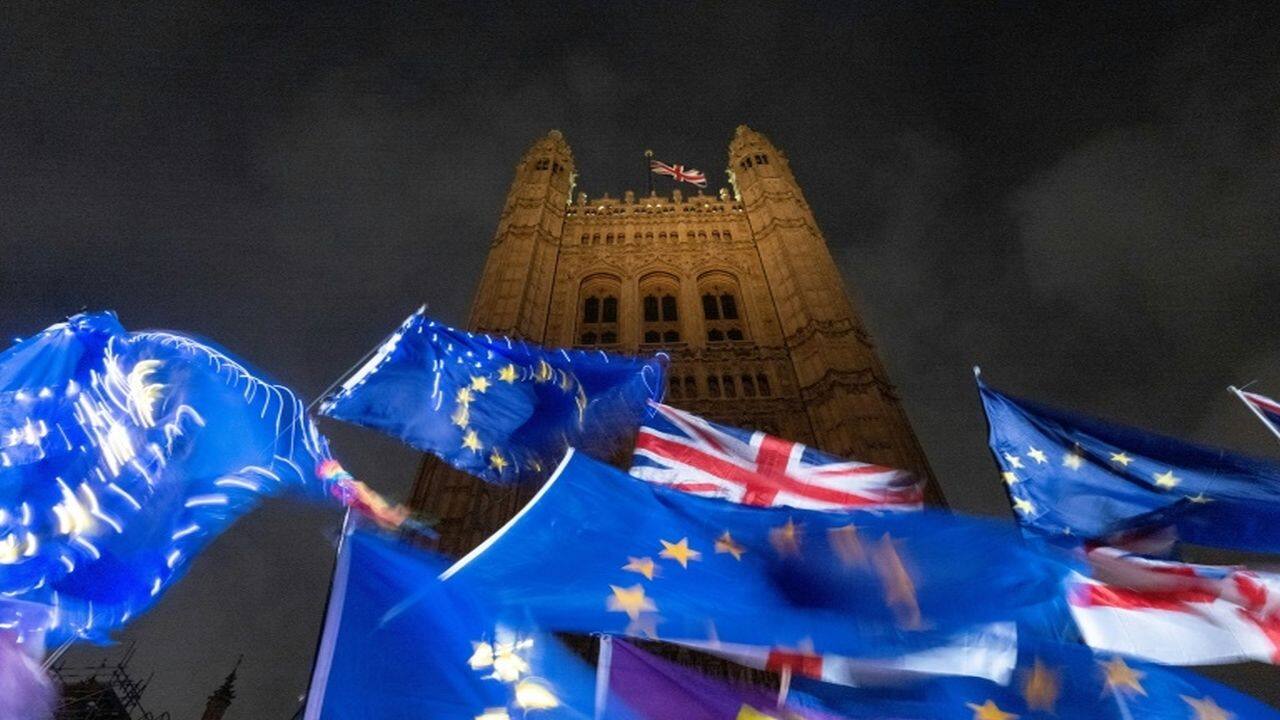British Prime Minister Boris Johnson says Christmas gatherings can’t go ahead and non-essential shops must close in London and much of southern England, as he imposed a new, higher level of coronavirus restrictions on the region to curb rapidly spreading infections.
Johnson said Saturday that the capital and other areas in southern England currently under Tier 3, the highest level of coronavirus restrictions, will move to an even stricter new Tier 4 that requires non-essential shops, hairdressers and indoor leisure venues to close after the end of business hours Saturday.
Johnson also said that a planned five-day easing of socializing rules that would allow up to three households to meet in “Christmas bubbles” will be canceled for Tier 4 areas. No mixing of households will be allowed except for under very limited conditions outside in public places.
He said that in the rest of England, people will be allowed to meet in Christmas bubbles for just one day instead of from Dec. 23 to Dec. 27, as originally planned.
“It is with a very heavy heart that I must tell you we cannot proceed with Christmas as planned,” Johnson said.
He said he concluded there was “no alternative open to me” and people must sacrifice this Christmas to have a better chance of protecting the lives of loved ones.
“I know how much emotion people invest in this time of year, and how important it is for grandparents to see their grandchildren,” Johnson said. “But when the virus changes its method of attack, we must change our method of defense.”
In announcing the new Tier 4 category, which mirrors many of the limits on public activity that were in place during the U.K.'s nationwide lockdown earlier this year, Johnson cited the rising infection rates in much of southern England. England’s chief medical officer said Saturday that based on preliminary modeling data, a government virus advisory group thinks a new strain of the virus identified this week spreads more quickly.
“We have said throughout this pandemic that we must all be guided by science. When the science changes, we must change our response,” he said.
THIS IS A BREAKING NEWS UPDATE. AP’s earlier story follows below.
LONDON (AP) — British Prime Minister Boris Johnson held emergency talks with his Cabinet on Saturday to discuss strategies to curb the spread of COVID-19 as the government’s scientific advisors said a new variant of the coronavirus was accelerating the spread of infections.
England’s chief medical officer, Chris Whitty, said that based on preliminary modeling data and rapidly rising incidence rates in southern England, a government virus advisory group thinks the new strain can spread more quickly.
There is no current evidence to suggest the new strain, which England's public health agency identified through genomic surveillance., is more deadly or that it affects vaccines and treatments, he added.
“We have alerted the World Health Organization and are continuing to analyze the available data to improve our understanding,” Whitty said in a statement.
Viruses mutate regularly, and scientists have found thousands different of mutations among samples of the virus causing COVID-19. But many of these changes have no effect on how easily the virus spreads or how severe symptoms are.
Even when a variant seems to be showing up more often someplace, it can be purely by chance. Scientists would need to study the genetic changes to see if they are influencing disease spread.
Maria Van Kerkhove, WHO’s technical lead on COVID-19, told reporters after receiving notification from England this week that the U.N. health agency had “no evidence this variant behaves differently” and that it was similar to a variant initially reported among mink in Europe. She said scientists would study the virus strain to see if there might be any difference in how it prompts an immune response in people.
Johnson is expected to announce to announce changes to his country’s current infection-prevention restrictions when he holds a news conference later Saturday.
London now has the highest case rates in England, and this week moved under the highest level of coronavirus restrictions in the country’s three-tier alert system. Most of southern England joined the capital in an expansion of Tier 3 rules Saturday, meaning a total of 38 million people — or 68% of England’s population — are living under the toughest rules.
Under the restrictions, people cannot socialize indoors or in most outdoor places, and restaurants and pubs only can offer takeaway service. Shops remain open, however.
The government has said restrictions on socializing will be eased from Dec. 23 to Dec. 27 to allow people to travel and celebrate Christmas with family and friends. The temporary holiday rules allow a maximum of three households to meet in a “Christmas bubble,” though Johnson urged residents to keep their celebrations small and short.
The planned relaxation of rules has raised increasing concerns given that infections are already climbing sharply in many places.
The prime minister held an unscheduled meeting on Friday evening to discuss the latest evidence about the mutant strain with officials. He has refused to rule out the prospect of a third national lockdown for England.
Wales and Northern Ireland, which have their own devolved governments and independent rules for controlling the virus, have already announced fresh lockdowns once Christmas is over.
U.K. officials reported another 28,507 confirmed cases on Friday, and 489 deaths of people within 28 days of testing positive for the virus. The U.K. has Europe’s second-highest COVID-19 death toll, behind Italy.
Follow our full coverage of the coronavirus pandemic here.










_2020091018165303jzv.jpg)

























